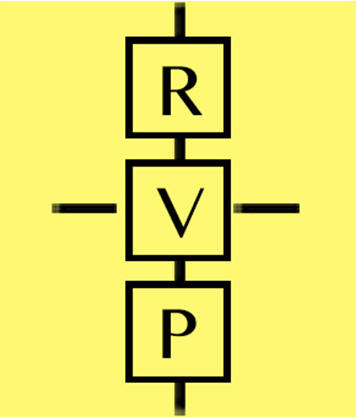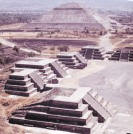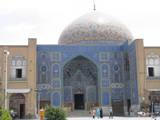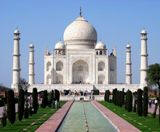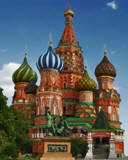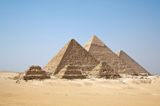The
Sacred and the Secular:
Complementary and/or Conflictual (II)
September 28 – October 30, 2009
Washington, D.C.
Seminar
Structure
Challenge
The Fall 2008 RVP seminar, The
Secular and The Sacred: Complementary or Conflictual (I) led
to a number of important conclusions, which in turn call
for further exploration in this 2009 seminar.
Two main challenges appeared for a new paradigm of unity
in diversity for global times. The first danger lies on
the secular side and is found in the present paradigm of
a world of radically single individuals and peoples
competing or even conflicting in terms of their separate
self-interests. The second danger lies on the side of
the religious and cultural heritages of the world when
conceived exclusively as conflicting among themselves
and to the secular.
The 2008 seminar noted that in recent times key thinkers
have begun to find that this calls for a renewed
participation of cultural and religious voices in public
debate and planning. For example, Jürgen Habermas notes
the importance of the substantive and experienced truth
content of such voices on e.g., human dignity and
solidarity. As resources for the creation of meaning and
identity, these hold keys to contemporary social
development. A deeper complementary and enriching
cooperation between secular and religious citizens may
now to be newly possible, and indeed urgently needed.
But as H.-G. Gadamer noted, it is not possible to
imagine a kind of “blank tablet” as a point of departure
in the Lockean or Cartesian sense. Rather, all are born
into their own culture and language which provide a
basic world view and a rich resource of fundamental
values. In our global times these civilizations now meet
one another in ways that but a few years ago were
unimaginable. In turn, they encounter a secular age with
its own proper and appropriate focus upon human
fulfillment. Thus, the challenge of developing a new
paradigm for philosophizing that enables the sacred and
the secular to be lived fully, creatively and
cooperatively so as to build a viable global whole.
Response
The 2009 seminar will build upon the above as well as on
the Islamic seminar on “Living Faithfully in Changing
Times”. Special attention will be devoted to
appreciating both the unique differences and the
relatedness of the world’s religious cultures, their
relation to the achievement of secular goals, and vice
versa the positive contribution of secular concerns for
living religion fully in this world. The search is for a
paradigm that enables mutual understanding and
communication in which the many peoples and cultures,
both sacred and secular, can be positively
complementary.
This will require attention to the triple threat that
arises from conceiving the world’s religious and secular
cultures in abstract and exclusive ways: (a) isolating
cultural and religious heritages from human experience
and thus rendering them irrelevant to life in our times;
(b) understanding the secular exclusively in ways that
exclude the unique creativity and contribution of each
culture to public discussion of the common good, and (c)
seeing both the sacred and the secular as essentially
contrasting, by implication conflictual, and hence as
dangers to the common good.
To respond to this threefold threat the Fall 2009
seminar will seek to open the way for a lived
existential sharing of the many cultures, religious and
secular. It will explore how the world’s great cultures
and religions, lived fully and each in their unique
manner, can develop resources of respect for other
individuals, peoples and cultures. The search will be
for a mutual complementarity and enrichment of the
sacred and secular traditions.
To do this, it will be concerned with philosophical
undergirdings of the cooperation of faith and reason in
the search for the human dignity of each person and
hence for the respect due to their societies, cultures
and civilizations, as well as to nature. Additionally,
it will take up the challenge of Habermas to find ways
in which this can be brought to bear on public
discussions of the common good, and do this in such wise
that secular and religious persons might find areas of
deep cooperation. In this it will seek to respect the
genuine concerns of secular thought and bring to the
table meaning rooted in cultural and religions heritages
that deepens, enriches and extends its contributions and
concerns.
Seminar
Characteristics
Size:
restricted to under 20 scholars, in order to facilitate
intensive interchange around a single table;
Interdisciplinary:
in order to draw upon the contemporary capabilities of
the various humanities and sciences and to penetrate
deeply into the philosophical roots and religious
meaning of cultures;
Intercultural: to
benefit from the experiences and commitments of the
various cultural communities from all parts of the
world, to discover the particular problems of living
together in our day, and especially to envisage new and
creative responses;
Focused: a
single integrating theme, in order to encourage a
convergence of research and insights;
Duration:
5 weeks, in order to allow the issues to mature, the
participants to establish a growing degree of mutual
comprehension, and new insight to emerge;
Intensive:
analyzing in detail a set of related readings as well as
the papers planned in common and completed by each of
the participants; and
Publication:
the resulting volume(s), consisting of substantive
studies drafted during the seminar by the individual
seminar participants and intensively discussed by all
will reflect the work of the seminar and share it
with those thinking deeply on the problems of
contemporary life in their various cultural communities.
Application for Participation
Applications for participation in this seminar should be
sent by email by Feb. 30, 2009, to cua-cscv@cua.eduand
include:
(1) a
vita describing one’s education, professional positions
and activities,
(2) a
list of the applicants’ publications,
(3) a
letter stating your interest and involvement in this
theme and the relation of participation in this seminar
to your past and future work in philosophy and related
studies, and
(4) an
abstract of a study(s) you might present as an integral
part of the seminar.

